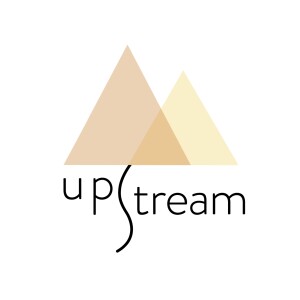
Palestine Pt. 8: Indigeneity and Settler-Colonialism w/ Krystal Two Bulls & Sumaya Awad
 2024-03-26
2024-03-26
As the ethnic cleansing and genocide of the Palestinian people continues, it's crucial that we continue to critically scrutinize and dismantle many of the myths and deadly ideologies that Israel and its Zionist supporters use to try and legitimize their project. We began our ongoing series on Palestine with a critical exploration of Zionism, and in this episode, Part 8 of this series, we’ll be zooming in on one particular element of Zionism: the claim of indigeneity.
Zionists claim that the Jewish people as a whole have a right to the land between the river and sea because they are, quote, indigenous, to that region. Putting aside the question of whether this assertion can be substantiated—what do we do with this claim of indigeneity, especially as we see it being weaponized by the forces of Zionism?
This is a huge question, and in this episode we’ll explore what it means to be Indigenous—both in the context of settler-colonialism and also as a relationship to land—and how our understanding of indigeneity relates to ongoing liberation struggles. And we’ve brought on two incredible guests to help us in this exploration.
Krystal Two Bulls is an Oglala Lakota/Northern Cheyenne grassroots organizer, former Director of the NDN Collective’s Landback Campaign, and Executive Director of Honor the Earth. Sumaya Awad is Palestinian writer, analyst, and socialist organizer. She’s the Director of Strategy and Communications at the Adalah Justice Project and a contributor to and co-editor, along with brian bean, of Palestine: A Socialist Introduction, published by Haymarket Books.
What does it mean to be Indigenous? How does one's relationship to the land inform our ideas about indigeneity? How does the structure of settler-colonialism form a contradiction in dialectical relationship to indigeneity? And how are the struggles of Indigenous people, from here in the so-called United States, to those in Palestine, interrelated? These are just some of the questions that we explore in this conversation with Sumaya Awad and Krystal Two Bulls.
And before we get started, Upstream is almost entirely listener funded—we couldn't keep this project going without your support. There are a number of ways in which you can support us financially: you can sign up to be a Patreon subscriber which will give you access to bonus episodes, at least one a month but usually more, at Patreon.com/upstreampodcast, and you can also make a tax-deductible recurring donation or a one-time donation on our website, upstreampodcast.org/support. Through your support you’ll be helping us keep Upstream sustainable and helping to keep this whole project going—socialist political education podcasts are not easy to fund so thank you in advance for the crucial support.
Further resources:
- Honor the Earth
- Adalah Justice Project
- Palestine: A Socialist Introduction co-edited by Sumaya Awad and brian bean
- Upstream: Palestine Pt. 1: A Socialist Introduction with Sumaya Awad
- Upstream: Palestine Pt. 2: Justice for Some with Noura Erakat
- Upstream: Palestine Pt. 3: Settler-Colonialism and Medical Apartheid with Rupa Marya & Jess Ghannam
- Upstream: Palestine Pt. 4: False Solutions and Paths of Resistance with Sumaya Awad
- Upstream: Palestine Pt. 5: The Political Economy of Palestine with Adam Hanieh
- Upstream: Palestine Pt. 6: One State with Ghada Karmi
- Upstream: Palestine Pt. 7: Direct Action w/ Max Geller of Palestine Action
- Donate to Middle Eastern Children's Alliance (MECA)
- Anera: Provide urgent humanitarian aid to Palestinians
- Write your member of Congress to demand an immediate ceasefire
- Neither Settler nor Native The Making and Unmaking of Permanent Minorities by Mahmood Mamdani
Khobs by Samih al-Qasim
Same old story / same old song / like bread on the banquet of eternity. / So let the vacant heads / and the croaking throats / during the hour of ablution - / enter your filthy bathrooms, / o fortress of sorrow, o city of crime!
This episode of Upstream was made possible with support from listeners like you and from A Bookkeeping Cooperative. Want to learn about values-aligned financial management? A Bookkeeping Cooperative offers engaging online workshops on organizational finances to develop the skills and confidence of those working towards a just world beyond capitalism. Sign up at www.bookkeeping.coop
Upstream is a labor of love — we couldn't keep this project going without the generosity of our listeners and fans. Subscribe to our Patreon at patreon.com/upstreampodcast or please consider chipping in a one-time or recurring donation at www.upstreampodcast.org/support
If your organization wants to sponsor one of our upcoming documentaries, we have a number of sponsorship packages available. Find out more at upstreampodcast.org/sponsorship
For more from Upstream, visit www.upstreampodcast.org and follow us on Twitter, Instagram, Facebook, and Bluesky. You can also subscribe to us on Apple Podcasts, Spotify, or wherever you listen to your favorite podcasts.
More Episodes
 2023-08-29
2023-08-29
 2023-08-14
2023-08-14
 2023-08-01
2023-08-01
 2023-07-17
2023-07-17
 2023-04-25
2023-04-25
 2023-01-17
2023-01-17
 2023-01-03
2023-01-03
Create your
podcast in
minutes
- Full-featured podcast site
- Unlimited storage and bandwidth
- Comprehensive podcast stats
- Distribute to Apple Podcasts, Spotify, and more
- Make money with your podcast
It is Free
- Privacy Policy
- Cookie Policy
- Terms of Use
- Consent Preferences
- Copyright © 2015-2024 Podbean.com





